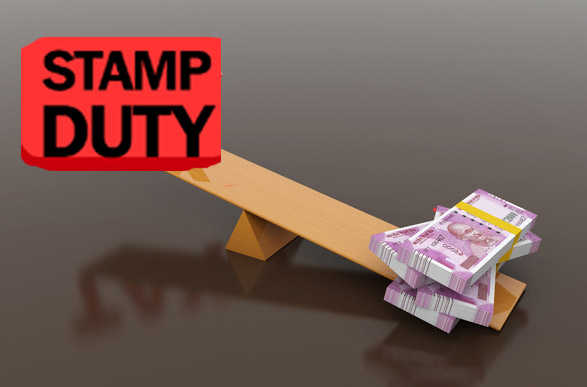
Vinod Behl
The recent move of the J&K government to abolish stamp duty for registration of property in the name of women, has put spotlight on the important issue rationalisation of stamp duty in the post-GST regime and effectively bringing down transaction cost to boost real estate. Calling it a huge step towards women empowerment the UN Women India, a UN agency has praised the state government for this step. In general, high stamp duty ranging from about 4 per cent to over 8 per cent is charged by state governments on property transactions. It is levied on every property transaction on the basis of circle rates, which in many cases are decided arbitrarily and are higher than the market rates.
On an average states charge 1 per cent less stamp duty for property registered in the name of women. There is also some subsidy for property registered in joint names.
Demand for a fair formula
The Centre has been writing to state governments to rationalise stamp duty for standard housing and waive it off completely for affordable housing. The Confederation of real estate developers of India (CREDAI), had sought abolition of stamp duty as it is a major source of consumption of black money in real estate as home purchasers show under-valued property in order to save stamp duty.
Welcoming the J&K government’s move, Ananta Raghuvanshi, Executive Director, Marketing, DLF Limited, said, “ It is time to encourage women to be financially stable and strong, especially in rural areas where traditionally farmlands are in the name of male heirs”. “Having said that, some rationalisation and standardisation of stamp duty is needed”, she added.
Sunil Aggarwal, Director & Associate Dean RICS School of Real Estate, however, is against stamp duty abolition for women, though he favours lowering of stamp duty for women in whose name the property is registered. Instead of stamp duty abolition for women, he favours zero property tax in case of transfer of property by senior citizens.
Praveen Jain, Vice Chairman, NAREDCO maintains that states should not blindly follow J&K as there are loopholes in this system. He is, however, in favour of partial waiving of stamp duty for property registered in the name of women. Real estate experts maintain that the provisions of partial stamp duty waiver for women are generally misused for speculative trading purposes. And in many cases, property registered in women’s name is resold for profit booking. There is, however, a clear unanimity on rationalising stamp duty to bring down property transaction costs, in order to give the much-desired boost to real estate. Pradeep Aggarwal, Chairman, Affordable Housing Council, Assocham, says relief is important as stamp duty increases property cost by about 3 per cent. He is in favour of fully abolishing stamp duty for affordable housing schemes (group housing and plotted development) of state governments.
Merger with GST?
Praveen Jain endorses Aggarwal, “Stamp duty should be lowered or subsumed in GST, especially for affordable housing, as it will help in the cause of achieving the goals of ‘Housing for All’. Sunil Aggarwal concurs, “In case of real estate, both stamp duty and GST are applicable. This is really draconian. The government should not just subsume stamp duty in GST but also ensure that it is not more than 5 per cent. Ideally, in case of self-use house, first house, there should be no GST or it should be 1 per cent at the most or there should be a flat charge of Rs 5000”.
What then is the real recipe for bringing down the overall transaction cost and property prices? Jain says that besides lowering stamp duty, circle rates of property should be rationalised and should be equivalent to market rates. Raghuvanshi believes that the ease of access to information process involved, tax sops, fixed rates for various services related to brokerage, tax information, legal due diligence, sales, rentals etc will give confidence to investors. Further, the registrar offices can also do forward integration and provide listings and valuation of options available.
Ultimately, it is the reliability, accountability and security of transactions that matter.
V. Suresh, Former Chairman, HUDCO, however, sums up on a different note. “Stamp duty reduction is the last thing I can think of as it has too little impact on the transaction cost or for that matter on the cost of property. In order to bring down property cost, land cost needs to be brought down. There is also a need for construction cost reduction with time overrun, together with bringing down cost management overhead. Equally important is to bring down the financing cost”.
— The writer is founder, Ground Real(i)ty Media



























